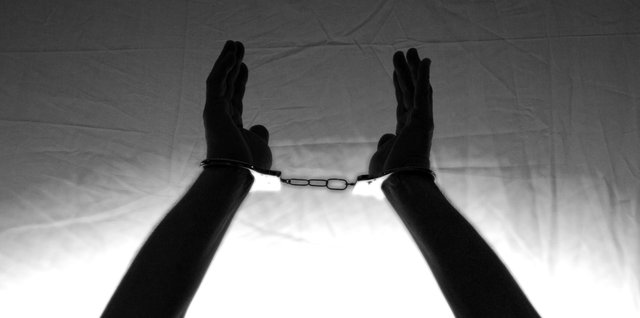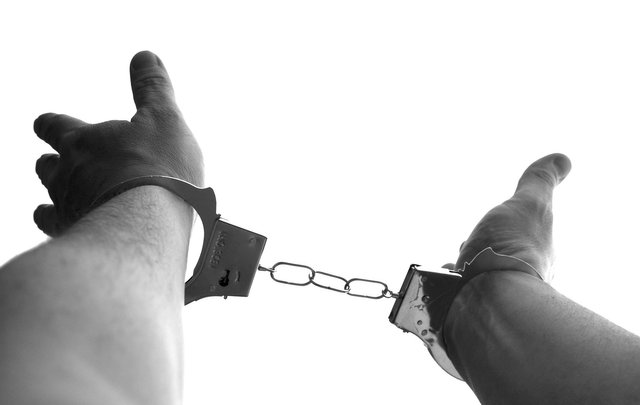Do You Define Yourself Free ?
3 Questions
How would you do if you would define freedom in your own words ? What are the limits of freedom? According to the answers to these questions, do you define yourself free?
My ideas about this subject are as follows:
Freedom is a concept that varies from person to person and it is impossible to define a clear freedom. There is a definition of freedom as different as the number of people. My definition of freedom is harmless happiness. So a person is as free as he is happy. And yes, a slave is free if he/she is happy. Freedom here is the freedom to not revolt.
As a matter of fact, it is seen in historical sources that some slaves who won their freedom do not want to leave their owners and want to continue as slaves to their lives.
We defined freedom as harmless happiness. The harmless part is happiness without harming others. So a person who is happy by killing another person can not be defined as free. There is a psychological problem here and these people are defined as mentally ill, not free.
Here, the limits of freedom come into play. Freedom limits are also varies to the person. So freedom does not always end where someone else's freedom begins. I mentioned that in the slave example above. If two people are willing, some freedom limits can be occupied. If a third person determines the limits of freedom of these two people, then those two people's freedom would be restricted by the third person.
Very complicated? Not actually.
Let me explain, X person and Y person agreed. According to this agreement, person Y put some restrictions on person X. For example, "You can spend up to $ 10 a day.". A third person Z came out and said, "No, everyone is free to spend the money they have.". If he removes the restrictions of X person's, it is actually a restriction of the freedom of person X. This is what I want to say.
Do I define myself as free?
I can describe myself free because I can be happy without harming anyone. But there is an important point, I am inside that "anyone". I am free, because I can be happy without harming myself neither. I mean, whoever says "I do not harm anyone, but I can NOT define myself as free." says it because, he/she has harmed himself/herself directly or, most importantly, indirectly (unintentionally).
I would also like to read your comments on this subject. Because I think everyone should be able to define and interpret of freedom.
Kendinizi özgür olarak tanımlar mısınız ?
Özgürlüğün kendinizce tanımını yapacak olsanız, nasıl yapardınız ? Özgürlüğün sınırları nedir ? Bu soruların cevaplarına göre, kendinizi özgür olarak tanımlar mısınız ?
Benim bu konu hakkındaki fikirlerim ise şu yönde:
Özgürlük, kişiden kişiye değişen bir kavramdır ve net bir özgürlük tanımı yapmak imkansızdır. Yani insan sayısı kadar farklı özgürlük tanımı vardır. Benim özgürlük tanımım ise zararsız mutluluktur. Yani bir insan mutlu olduğu kadar özgürdür. Ve evet, bir insan köleyken mutluysa bile özgürdür. Buradaki özgürlük ise başkaldırmama özgürlüğüdür.
Nitekim özgürlüklerini kazanan bazı kölelerin sahiplerinden ayrılmak istemediği, hayatına köle olarak devam etmek istediği, tarihi kaynaklarda görülmüştür.
Özgürlüğü zararsız mutluluk olarak tanımlamıştık. Zararsız kısmı ise başkalarına zarar vermeden mutluluktur. Yani başka bir insanı öldürerek mutlu olan bir insan özgür olarak tanımlanamaz. Burada psikolojik bir problem vardır ve bu kişiler özgür değil akıl hastası olarak tanımlanır.
Burada da özgürlük sınırları devreye girer. Özgürlük sınırları da kişiye bağlıdır. Yani özgürlük, her zaman başkasının özgürlüğünün başladığı yerde bitmez. Yukarıdaki köle örneğinde bundan bahsettim. Eğer iki insan da buna razı ise başkasının özgürlük alanı işgal edilebilir. Bu iki insanın özgürlük sınırını belirleyen bir üçüncü kişi çıkarsa, o iki insanın özgürlüklerini kısıtlamış olur.
Çok mu karmaşık ? Değil aslında.
Şöyle anlatayım, A kişisi B kişisi anlaştılar. Bu anlaşmaya göre B kişisi, A kişisine bazı kısıtlamalar koydu. Mesela günde en fazla $10 harcayabilirsin gibi. Üçüncü bir C kişisi çıkıp da "Hayır, herkes istediği parayı harcamakta özgürdür." deyip A kişisinin kısıtlamalarını ortadan kaldırırsa, bu aslında A kişisinin özgürlüğünün kısıtlanması demektir. Bu yani mantığı.
Peki ben kendimi özgür olarak tanımlar mıyım ?
Hiç kimseye zarar vermeden mutlu olabildiğim için tanımlayabilirim.Fakat önemli bir nokta var, bu hiç kimsenin içinde ben de varım. Kendime de zarar vermeden mutlu olduğum için özgürüm. Yani "Hiç kimseye zarar vermiyorum fakat kendimi özgür olarak tanımlayamam." diyen birisi aslında kendisine doğrudan ya da en önemlisi dolaylı yoldan (farkında olmadan) zarar verdiği için kendisini özgür olarak tanımlayamaz.
Sizin de bu konu hakkındaki görüşlerinizi okumak isterim. Çünkü bence herkes özgürlük tanımını yapabilmeli ve yorumlayabilmeli.




To the question in your title, my Magic 8-Ball says:
Hi! I'm a bot, and this answer was posted automatically. Check this post out for more information.
That is quite a profound point you make about the third party restricting the freedom of the first two! I have never thought of it that way, but it makes plenty of sense to me. Love that wisdom, wow!
I guess my own responses would be as follows:
The ability to pursue your desires without interference from others
I am not free to interfere with other people's pursuits of their desires when those pursuits do not entail interference with other's desires (I sort of folded your three party example into here. So person A can stop person B from interfering with person A or C)
No, I would not consider myself completely free. I submit to the rules and laws of a government, of which I do not always agree. But I value the sacrifice of freedom in exchange for the security, convenience, and services that this government provides. I do not want or need unlimited freedom in order to be happy, so under your definition I would have freedom, but under mine, I do not.
Thanks for the thought-provoking think piece!
Thanks a lot for your comment.
I think your limits of freedom can be abused. I mean, you can find yourself in person B unintentionally any minute. Or the majority could be restrict minorty. But if there is no abuse, I agree you.
And about being free, your definition is quite strong. But in government issues, no one can satisfy everybody. So in your definition, there is no way to make everyone free. But I don't think like that. Because, even if you do not agree with the some rules of laws, you can still be happy. Harmless happiness.
I mean, you don't drink Starbucks coffee but the new law says all Starbucks coffee shops must be closed. And you do not agree with that. You can still be free, still have harmless happiness.
I like it - freedom as "harmless happiness" is an interesting concept. I will have to think about this more over the next few days. Deep stuff!
Take your time my friend. Thinking is our best way.
And arguing too. I hope I can see your ideas in future.
Thank you.